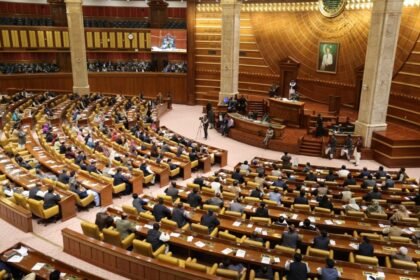ISLAMABAD ( The COW News Digital)The International Monetary Fund (IMF) has expressed concern over Pakistan’s lack of effective “red flag” indicators to prevent corruption and abuse of power among senior officials, according to a draft report shared with the government.
The officials under scrutiny include the head of state, head of government, politicians, bureaucrats, judges, military officers, senior public sector executives, ambassadors, and members of parliament.
Sources told The Express Tribune that the IMF has shared its preliminary observations and recommendations with Islamabad, offering the government an opportunity to review them before the release of the final Governance and Corruption Diagnostic Report later this month.
The draft notes that Pakistan suffers from limited access to relevant data, an absence of automated screening tools, and a serious deficiency in “red flag” indicators that could help detect corruption and misuse of authority. As a result, identification of such misconduct remains inconsistent and ineffective.
The IMF has recommended that Pakistan adopt best international practices and legal frameworks to curb corruption, citing examples from countries such as Canada and Colombia that have implemented effective safeguards in public procurement and government contracting.
Earlier this year, the IMF’s Governance and Corruption diagnostic mission visited Pakistan and held meetings with over three dozen government and state institutions. At Pakistan’s request, the IMF extended the report’s publication deadline to August.
The draft further highlights systemic flaws in the process of verifying and monitoring bank accounts held by public officials. While it acknowledged Pakistan’s efforts to introduce mechanisms aimed at reducing corruption, the report stressed the need for stronger oversight of officials’ sources of wealth.
It recommended that the State Bank of Pakistan, Federal Board of Revenue, and Securities and Exchange Commission enhance their regulatory frameworks to ensure more effective monitoring. It also pointed out that many reporting institutions lack a proper understanding of the nuanced nature of corruption in the country.
The Ministry of Finance has given various departments until last Friday to respond to the IMF’s findings and recommendations. Some departments have accepted certain observations, while others have disagreed and requested revisions. According to sources, the extensive process of reviewing each recommendation may delay the report’s final release.







